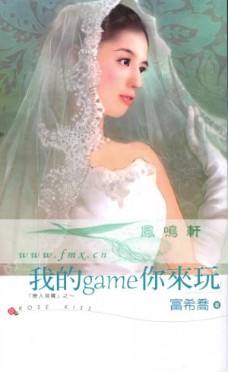my name is red-我的名字叫红-第119章
按键盘上方向键 ← 或 → 可快速上下翻页,按键盘上的 Enter 键可回到本书目录页,按键盘上方向键 ↑ 可回到本页顶部!
————未阅读完?加入书签已便下次继续阅读!
following claim somewhere in one of his sermons; which are written out and
collected in a thick tome: Kalenderi dervishes are the unnecessary dross of the
world because they don’t belong to any of the four categories into which men
are divided: 1。 notables; 2。 merchants; 3。 farmers and 4。 artists; thus; they are
superfluous。
Additionally; he said the following: “These two always tramp about as a pair
and always argue about which of them will be the first to eat with their only
spoon; and those who don’t know that this is a sly allusion to their true
concern—who’ll be the first to bugger the other—find it amusing and laugh。
His Excellency Please…Don’t…Take…It…Wrong Hoja has uncovered our secret
because he; along with us; the pretty young boys; apprentices and miniaturists;
are all fellow travelers on the same path。”
The Real Secret
However; the real secret is this: While the Frank infidel was making our
picture; he gazed at us so sweetly and with such attention to detail that we
took a liking to him and enjoyed being depicted by him。 But; he was
mitting the error of looking at the world with his naked eye and rendering
what he saw。 Thus; he drew us as if we were blind although we could see just
fine; but we didn’t mind。 Now; we’re quite content; indeed。 According to the
Hoja; we’re in Hell; according to some unbelievers we’re nothing but decayed
corpses and according to you; the intelligent society of miniaturists gathered
here; we’re a picture; and because we’re a picture; we stand here before you as
though we were alive and well。 After our run…in with the respected Hoja
Effendi and after walking from Konya to Sivas in three nights; through eight
villages; begging all the way; one night we were beset by such cold and snow
that we two dervishes; hugging each other tightly; fell asleep and froze to
death。 Just before dying I had a dream: I was the subject of a painting that
entered Heaven after thousands and thousands of years。
335
IT IS I; MASTER OSMAN
They tell a story in Bukhara that dates back to the time of Abdullah Khan。 This
Uzbek Khan was a suspicious ruler; and though he didn’t object to more than
one artist’s brush contributing to the same illustration; he was opposed to
painters copying from one another’s pages—because this made it impossible
to determine which of the artists brazenly copying from one another was to
blame for an error。 More importantly; after a time; instead of pushing
themselves to seek out God’s memories within the darkness; pilfering
miniaturists would lazily seek out whatever they saw over the shoulder of the
artist beside them。 For this reason; the Uzbek Khan joyously weled two
great masters; one from Shiraz in the South; the other from Samarkand in the
East; who’d fled from war and cruel shahs to the shelter of his court; however;
he forbade the two celebrated talents to look at each other’s work; and
separated them by giving them small workrooms on opposite ends of his
palace; as far from each other as possible。 Thus; for exactly thirty…seven years
and four months; as if listening to a legend; these two great masters each
listened to Abdullah Khan recount the magnificence of the other’s never…to…
be…seen work; how it differed from or was oddly similar to the other’s。
Meanwhile; they both lived dying of curiosity about each other’s paintings。
After the Uzbek Khan’s life had run its long tortoiselike course; the two old
artists ran to each other’s rooms to see the paintings。 Later still; sitting upon
either edge of a large cushion; holding each other’s books on their laps and
looking at the pictures that they recognized from Abdullah Khan’s fables; both
the miniaturists were overe with great disappointment because the
illustrations they saw weren’t nearly as spectacular as those they’d anticipated
from the stories they’d heard; but instead appeared; much like all the pictures
they’d seen in recent years; rather ordinary; pale and hazy。 The two great
masters didn’t then realize that the reason for this haziness was the blindness
that had begun to descend upon them; nor did they realize it after both had
gone pletely blind; rather they attributed the haziness to having been
duped by the Khan; and hence they died believing dreams were more beautiful
than pictures。
In the dead of night in the cold Treasury room; as I turned pages with
frozen fingers and gazed upon the pictures in books that I’d dreamed of for
forty years; I knew I was much happier than the artists in this pitiless story
from Bukhara。 It gave me such a thrill to know; before going blind and passing
into the Hereafter; that I was handling the very books whose legends I’d heard
336
about my whole life; and at times I would murmur; “Thank you; God; thank
you” when I saw that one of pages I was turning was even more marvelous
than its legend。
For instance; eighty years ago Shah Ismail crossed the river and by the
sword reconquered Herat and all of Khorasan from the Uzbeks; whereupon he
appointed his brother Sam Mirza governor of Herat; to celebrate this joyous
occasion; his brother; in turn; had a manuscript prepared; an illuminated
version of a book entitled The Convergence of the Stars; which recounted a story
as witnessed by Emir Hüsrev in the palace of Delhi。 According to legend; one
illustration in this book showed the two rulers meeting on the banks of a river
where they celebrated their victory。 Their faces resembled the Sultan of Delhi;
Keykubad; and his father; Bughra Khan; the Ruler of Bengal; who were the
subjects of the book; but they also resembled the faces of Shah Ismail and his
brother Sam Mirza; the men responsible for the book’s creation。 I was
absolutely certain that the heroes of whichever story I conjured while looking
at the page would appear there in the sultan’s tent; and I thanked God for
giving me the chance to see this miraculous page。
In an illustration by Sheikh Muhammad; one of the great masters of the
same legendary era; a poor subject whose awe and affection for his sultan had
reached the level of pure love was desperately hoping; as he watched the sultan
play polo; that the ball would roll toward him so he could grab it and present
it to his sovereign。 After he’d waited long and patiently; the ball did indeed
e to him; and he was depicted handing it to the sultan。 As had been
described to me thousands of times; the love; awe and submission that a poor
subject aptly feels toward a great khan or an exalted monarch; or that a
handsome young apprentice feels toward his master; was rendered here with
such delicacy and deep passion; from the extension of the




